Windows 10 includes a feature called Offline Files that allows making network files and folders available offline when you’re not connected to that network. This feature is very useful when you need to access network resources while offline. You can mark a file or a folder as 'always available offline' to keep its copy stored on your computer. Here is how it can be done.
Advertisеment
What is Offline Files
Offline Files makes network files available to a user, even if the network connection to the server is unavailable or slow. When working online, file access performance is at the speed of the network and server. When working offline, files are retrieved from the Offline Files folder at local access speeds. A computer switches to Offline Mode when:
- Always Offline mode has been enabled
- The server is unavailable
- The network connection is slower than a configurable threshold
- The user manually switches to Offline Mode by using the Work offline button in File Explorer.
Note: The Offline Files feature is available
- In Windows 7 in the Professional, Ultimate, and Enterprise editions.
- In Windows 8 in the Pro and Enterprise editions.
- In Windows 10 in the Pro, Enterprise, and Education editions.
What is Always Offline Mode
Always Offline mode provides faster access to files and lower bandwidth usage by always working offline, even when connected through a high-speed network connection. Windows updates files in the Offline Files cache by synchronizing hourly in the background, by default.
The Always Offline mode provides the following benefits:
- Users experience faster access to files in redirected folders, such as the Documents folder.
- Network bandwidth is reduced, decreasing costs on expensive WAN connections or metered connections.
How to use Always Available Offline mode
Before enabling Always Available Offline mode, you need to turn on the Offline Files feature in Windows 10. Refer to the article
Enable Offline Files in Windows 10
Now, follow the instructions below.
To enable Always Available Offline mode, do the following.
- Navigate to your files on the network.
- Right-click on the desired file or folder you want to make available offline.
- Select Always available offline from the context menu.
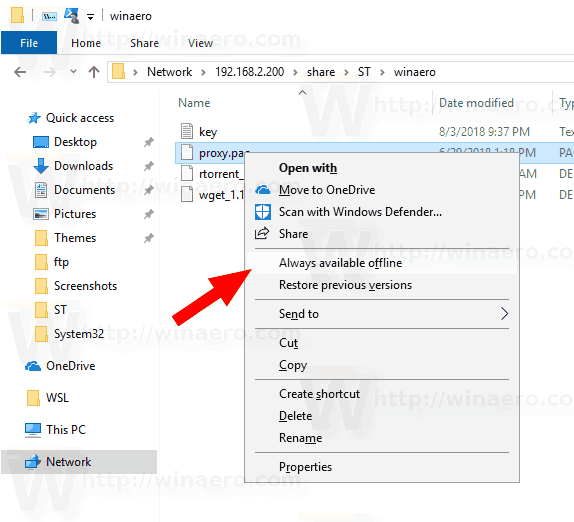
- You will see a Completed preparing files so they are always available offline dialog for a short period of time.
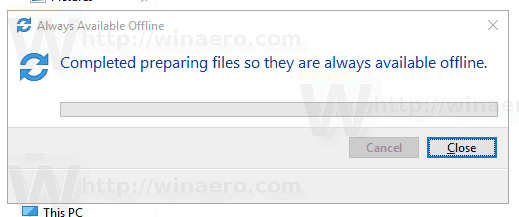
- After that, the file or folder will get a sync overlay icon.
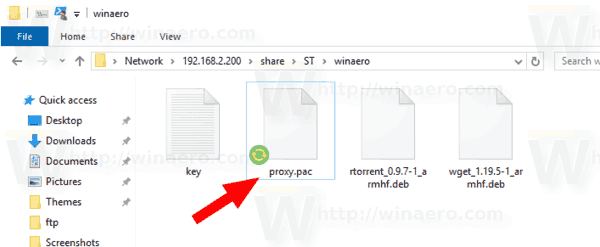
You are done.
At some point, you may want to remove the Always Available Offline flag from certain files or folders. Here is how it can be done.
To disable Always Available Offline mode for files and folders, do the following.
- Open the classic Control Panel app.
- Switch its view to either "Large icons" or "Small icons" as shown below.
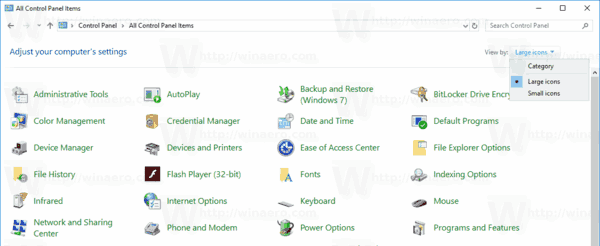
- Find the Sync Center icon.

- Open Sync Center and click on the link Manage offline files on the left.
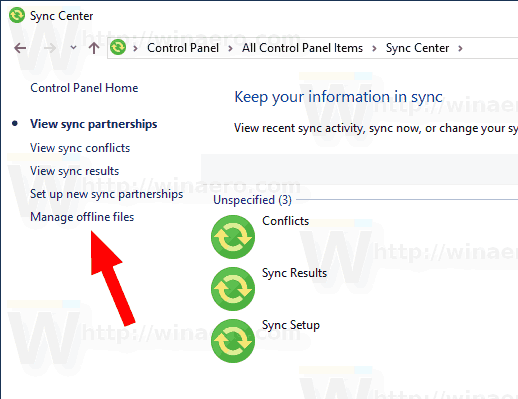
- Click on the View your offline files button.
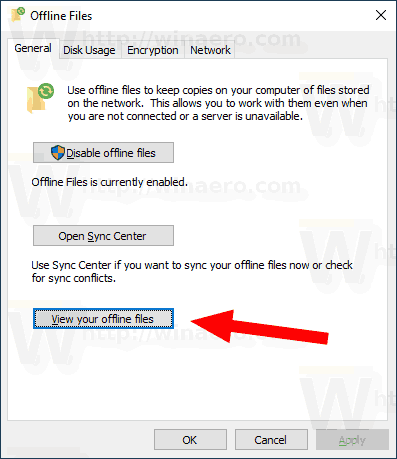
- In the Offline Files folder, navigate to the network file or folder you want to disable the always available offline feature for. Right-click on it, and uncheck (turn off) the Always available offline by clicking on it.
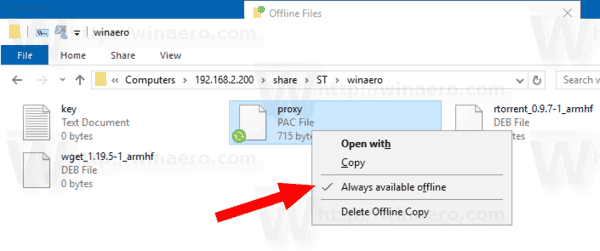
- The network file or folder will now no longer have a sync overlay icon, so the Always Available Offline is now disabled for that file/folder.
That's it.
Support us
Winaero greatly relies on your support. You can help the site keep bringing you interesting and useful content and software by using these options:
